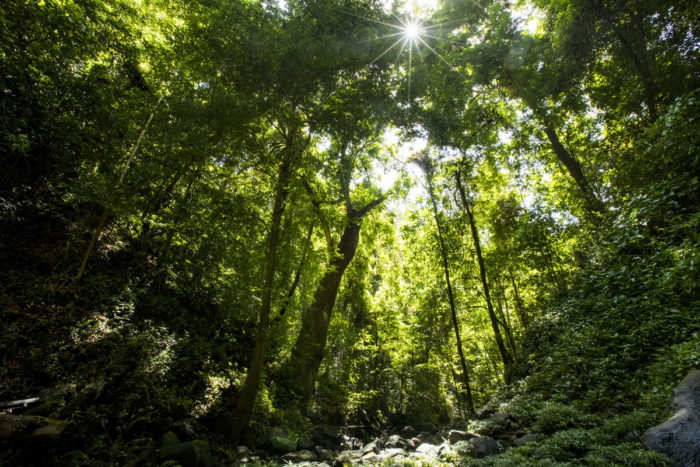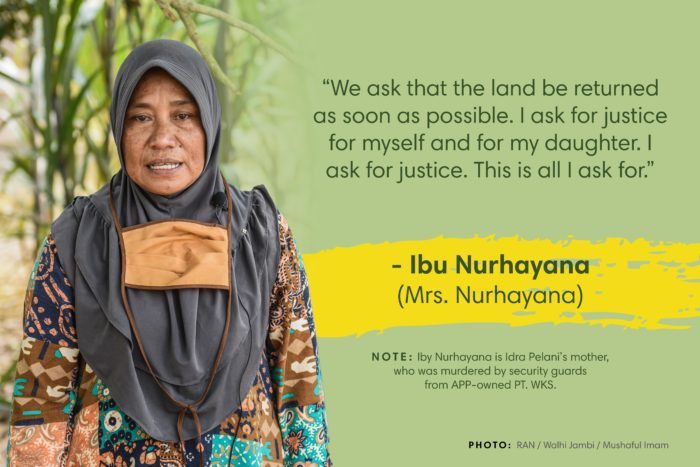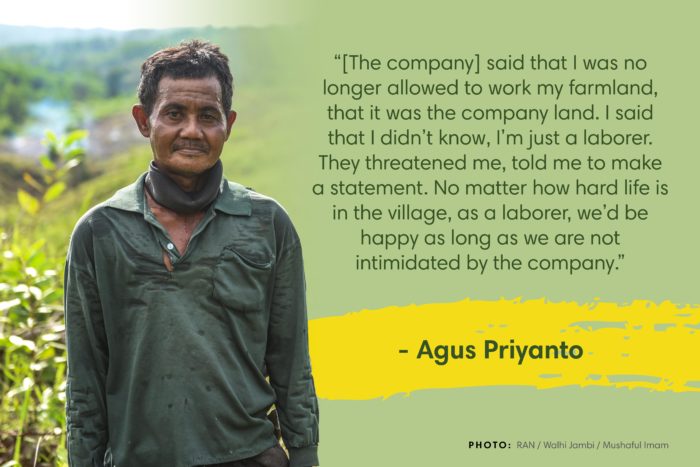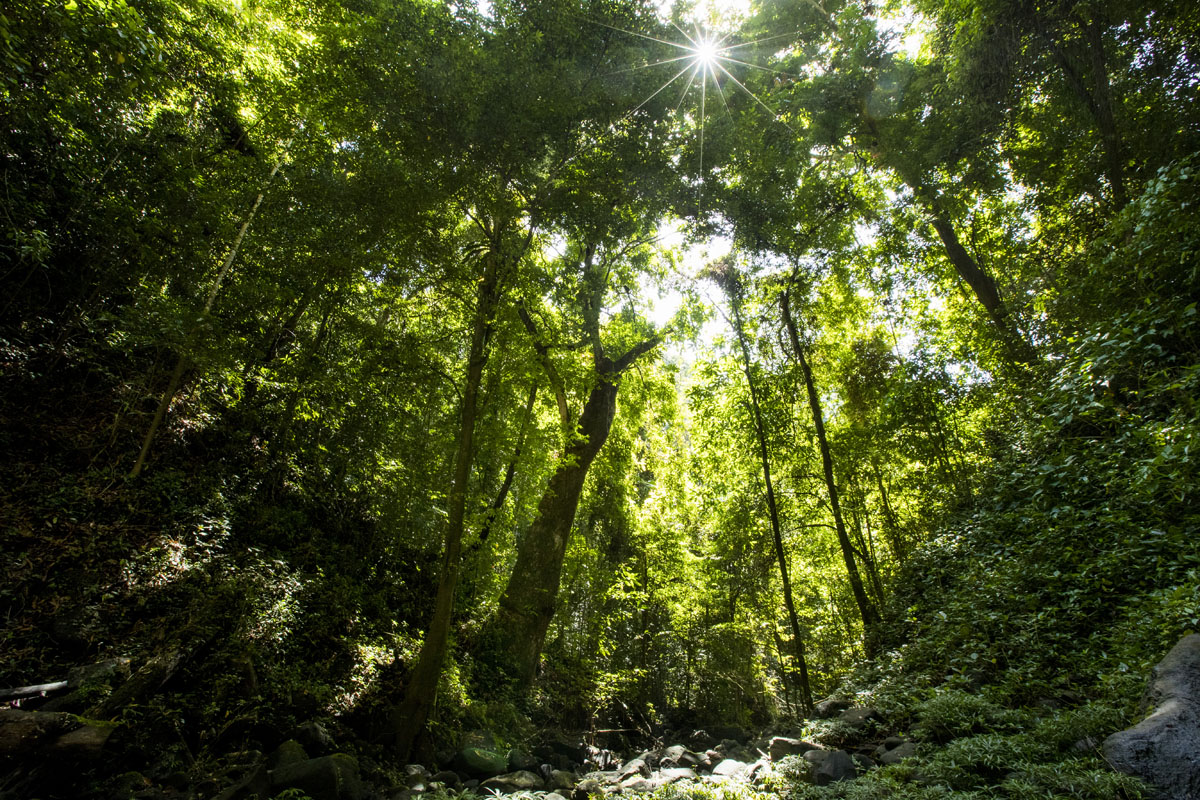The Keep Forests Standing campaign calls on the most influential corporations fueling the destruction of rainforests and the violation of human rights to take real action. A recent evaluation found that while none of the 17 major brands and banks have taken adequate action to address their contribution to the destruction of forests, ongoing land grabs, and violence against local and Indigenous communities, a number of banks and brands performed worse than their peers. These corporations are the biggest Forest Offenders.

The impacts of these companies’ failings hurt the communities on the ground everyday. Most Indigenous and frontline communities in Indonesia depend on the land for their farms, their forests for timber and other foraged products, and the clean water for drinking and bathing. While communities may have rights to manage a piece of land that have been passed down for centuries, and which are recognized by all surrounding communities, it is rare that they have the paperwork which designates them as the legal landowners. This means that these communities have little legal recourse when their traditionally-owned land is given to a palm oil or pulp company for a new plantation. They face the choice of either losing their source of food and water, or fighting back and facing harassment, arrest, or worse. Here are the stories of three people whose lives have been upended by the actions of irresponsible companies, the brand name companies that source from them, and the unaccountable banks that fund them.
Some companies try to get away with murder
Ibu Nurhayana (Mrs. Nurhayana) is a farmer and the widowed mother of two in the small village of Lubuk Mandarsah, in Jambi Province, Indonesia. Her eldest son, Indra Pelani, grew up in the village, but when Asia Pulp and Paper took their traditionally-owned land, which they used for rice, cassava, and vegetable crops, he took action to stop them. He was part of protests to protect the land, and became well known by the company operatives. In 2015, company security agents stopped Indra Pelani as he rode on a motorcycle to a local celebration – the next day he was found brutally murdered, his body thrown into the bushes at the side of the road. Ibu Nurhayana mourned her son, and was left as the sole caretaker for her young daughter, Nilaputri. APP promised her they would provide her with some sort of compensation, but to this day, nothing has come and she lives in a small house with tarps for walls. Nothing can bring her son back, and now Ibu Nurhayana has lost both her land and her family. As she says ““We ask that the land be returned as soon as possible. For the future, I ask for justice for myself and for my daughter Nilaputri. Because I feel like the condition is like this, since [my son] is gone from this world, because he was my backbone. I ask for justice. This is all I ask for.”

Violence and intimidation tactics against laborers are too common
Agus Priyanto is a farmer from the same village. One day, as he worked on his land, growing chilis and vegetables, he was visited by five representatives from the company, and two armed members of the military. There had been no warning. They demanded that he stop work, and told him he was not allowed to work on the land. They told him that the land that he had tilled and planted, and which had been managed by people in his village for generations, was company land. He told them he knew nothing of this, that he was just a laborer. Suddenly, one of the military officers pulled out his gun, and fired – first to the west and then to the east. The company men told Mr. Priyanto to sign a statement — a statement he did not even have time to read — he refused. In the end the company men and the military officers left, but Mr. Priyanto was left unsure if he could continue to grow his crops or if the officers with the guns would return. As he said “No matter how hard life is in the village, as a laborer, we’d be happy as long as we are not intimidated by the company. “

Violent intimidation, forest destruction, even arrest and murder are what happen when brand name companies and banks refused to take responsibility for what happened in their supply chain. It’s time for companies throughout the supply chain to take action and ensure that the rights of all people are respected.
